MiTRENDS Resource Library
MiTRENDS Resource Library
Our resource library features a collection of tailored materials to support colleges in expanding student access to mental health support. Our team has a number of resources in development, so be sure to check back and keep in touch in order to stay up to date as we continue publishing resources.
If you’d like to provide feedback on any resources or offer ideas for future resources you’d like to see us develop, please feel free to fill out our contact form.
MHICC Data
MHICC Data
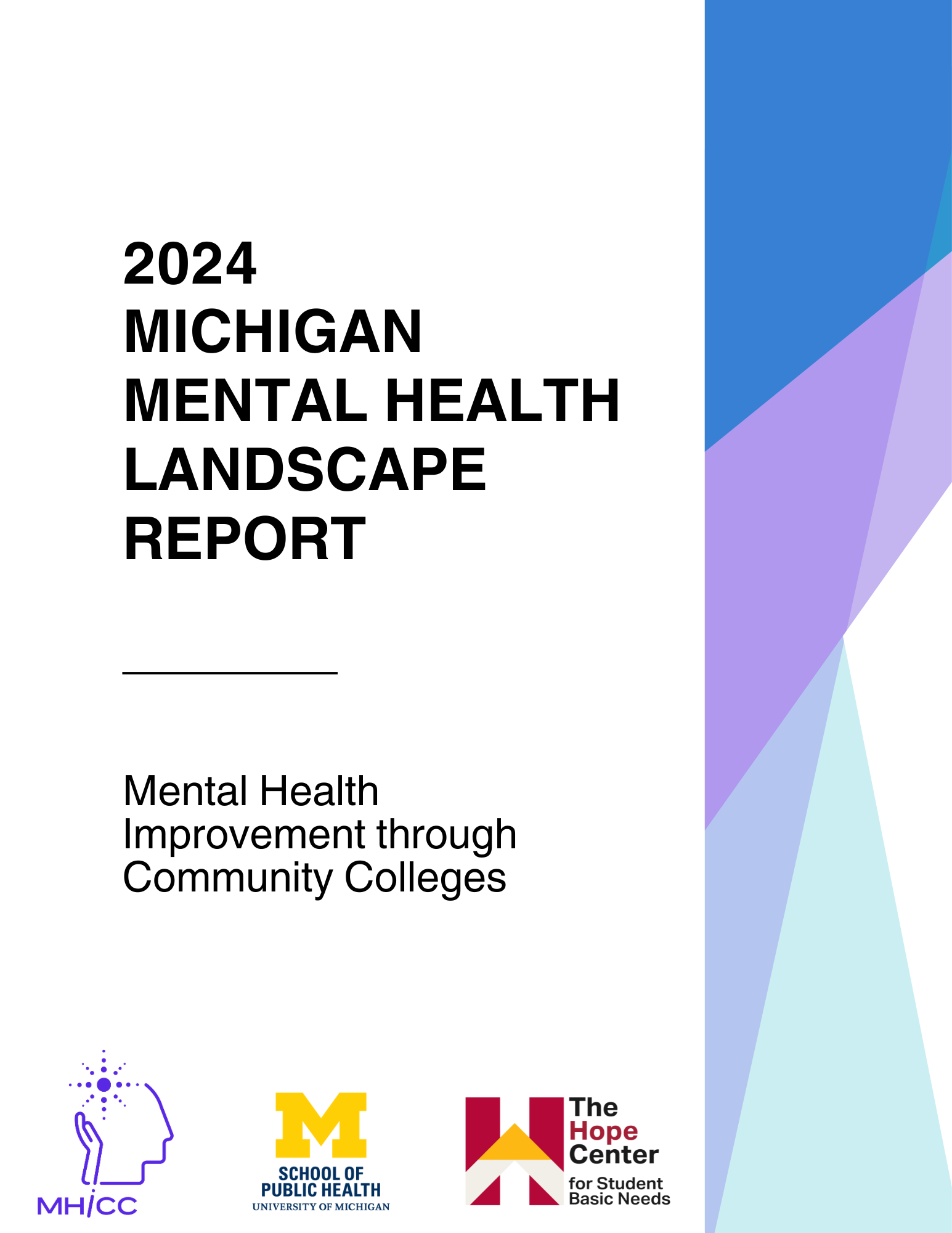
Data Report
2024 Statewide Michigan Mental Health Landscape Report
This report uses data from the 2024 Michigan Mental Health Landscape Survey to shed light on the availability and accessibility of mental health services for students across Michigan community colleges.
MHICC Resource Guides
MHICC Resource Guides
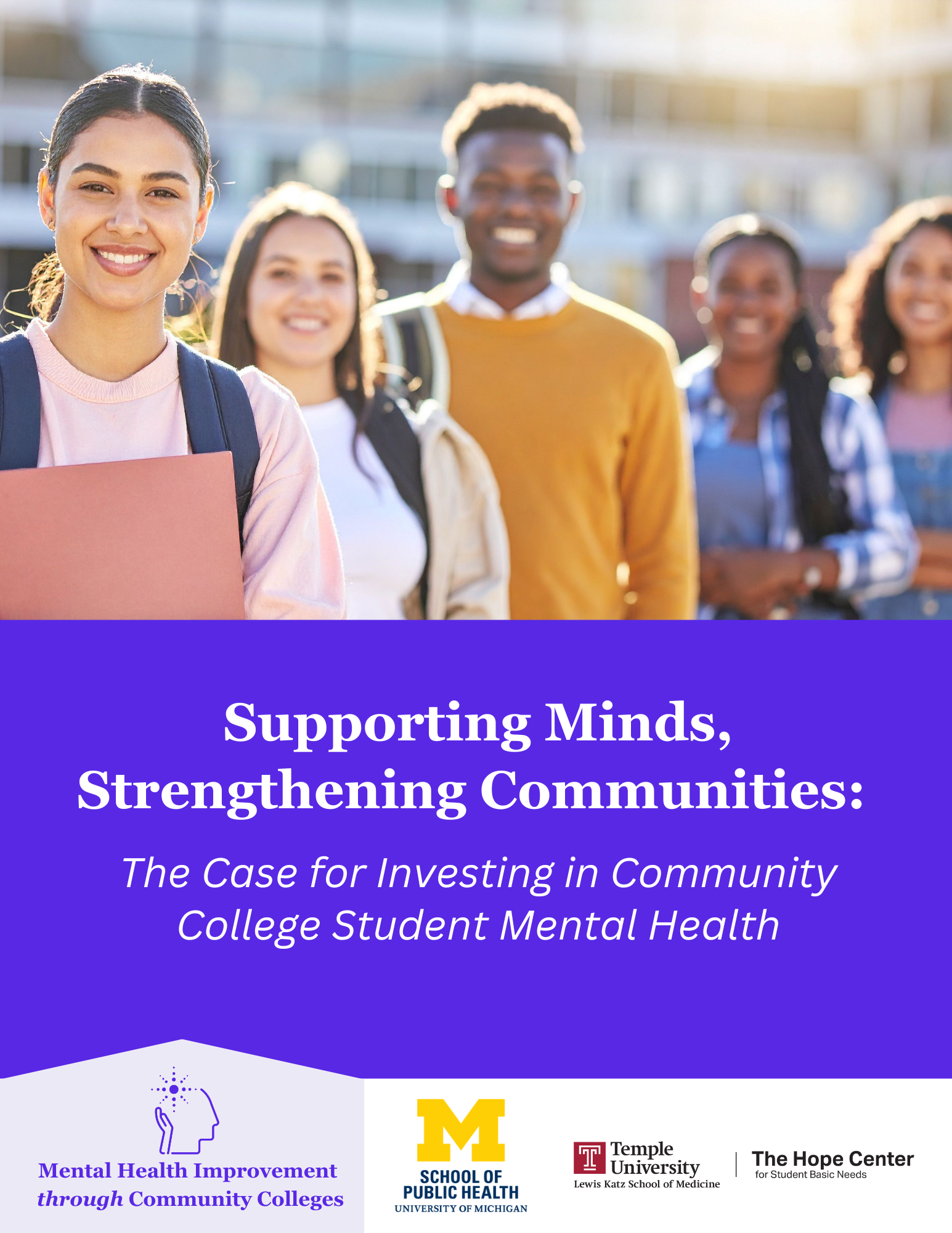
Toolkit
Supporting Minds, Strengthening Communities: The Case for Investing in Community College Student Mental Health
This resource is designed to support community college mental health decision makers in making informed, compelling cases for prioritizing student mental health. This resource highlights key data, evidence-based talking points, and practical framing to demonstrate the value of mental health investments for students, colleges, and the communities they serve. Additional tools, resources, and action steps that colleges can utilize to strengthen and inform their case making are provided.
One Page Toolkit Highlights – Coming Soon!

Toolkit
Developing Memoranda of Understanding: A “How-To” Guide for Creating Formal Partnerships with Local Mental Health Providers
This resource discusses the purpose and potential uses of formal partnerships between colleges and local mental health providers, describes action steps and considerations for developing an MOU with local mental health providers, and provides tangible examples and templates for drafting a comprehensive MOU.
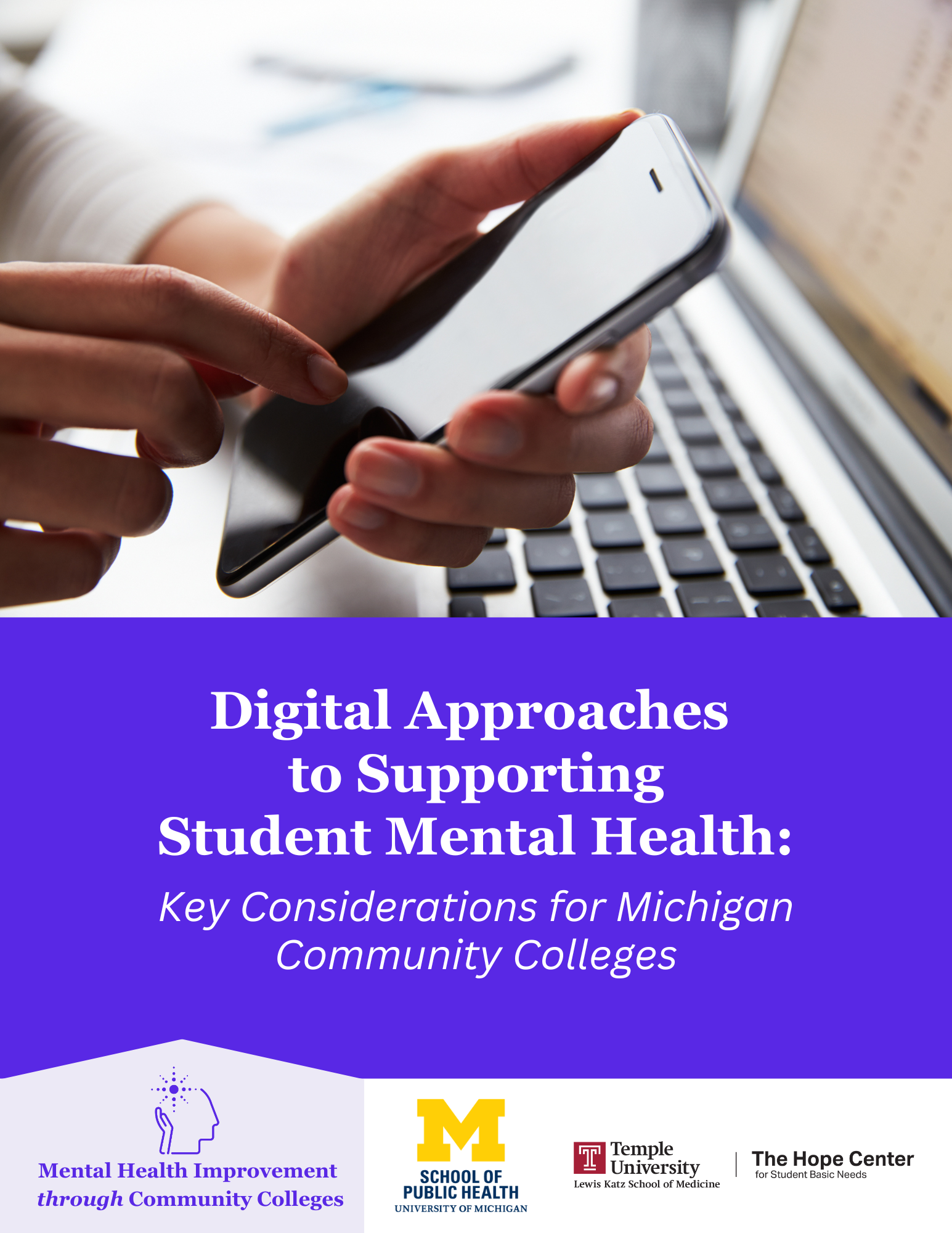
Toolkit
Digital Approaches to Supporting Student Mental Health: Key Considerations for Michigan Community Colleges
This resource discusses the role of Digital Mental Health Interventions (DMHIs) in supporting student mental health, while serving as a guide to aid community college administrators and mental health providers in making informed decisions about implementing DMHIs at their college.
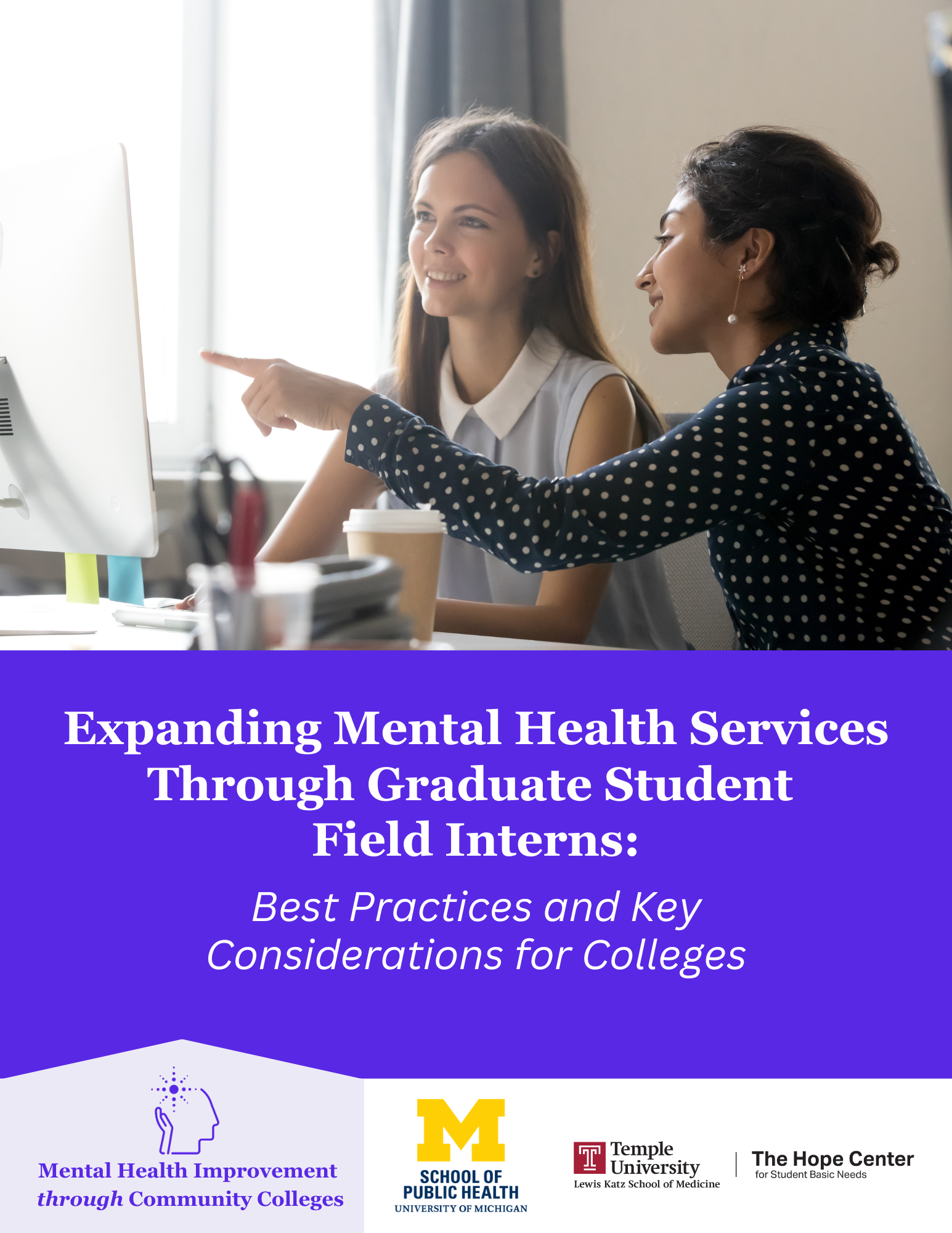
Toolkit
Expanding Mental Health Services Through Graduate Student Field Interns: Best Practices & Key Considerations for Colleges
This resource describes the process of hosting graduate student field interns as a means to expand capacity to support student mental health, provides general criteria and considerations for hosting field interns from different graduate programs, and offers guidance on determining if hosting field interns is a fit for your college.
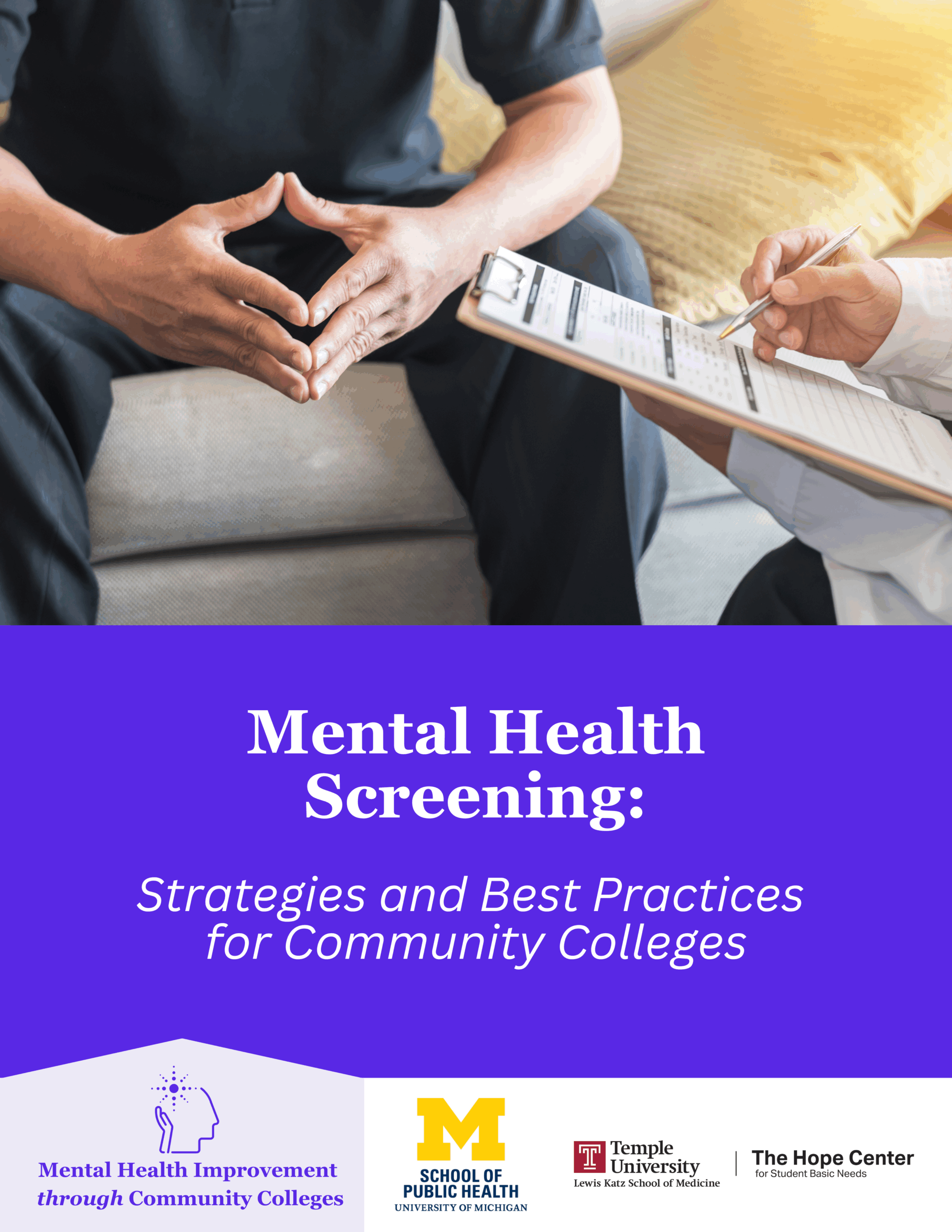
Toolkit
Mental Health Screening: Strategies & Best Practices for Community Colleges
This toolkit offers practical mental health screening strategies tailored to the unique needs of Michigan community colleges. It includes best practices for creating and launching a campus-wide screening approach, along with a curated list of evidence-based tools for college staff and mental health professionals.
Featured External Resources
Featured External Resources
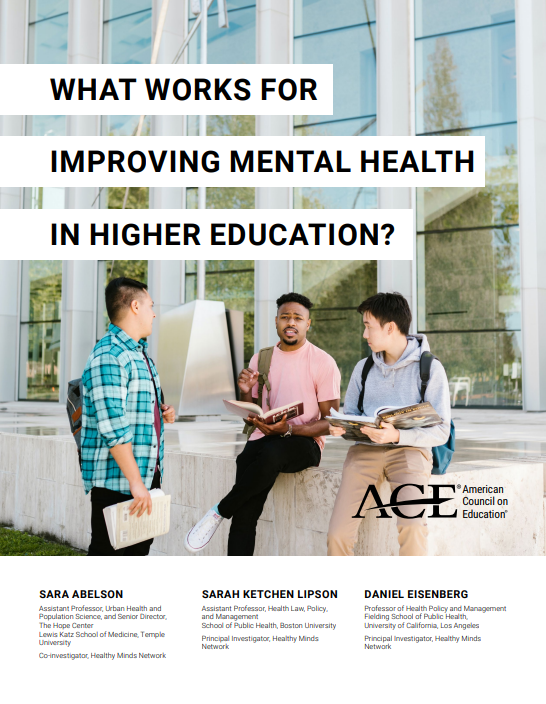
What Works for Improving Mental Health in Higher Education?
This 2023 report presents summarized findings of the current evidence base for a range of mental health resources, policies, and practices. The authors – Drs. Sara Abelson, Sarah Ketchen Lipson, and Daniel Eisenberg – highlight recommendations to help higher education leaders make evidence-based investments in student mental health.

Barriers to Bridges: Strengthening Michigan Communities by Addressing College Student Basic Needs
This 2025 report outlines priority recommendations for state policymakers, higher education leaders, and community stakeholders to eliminate basic needs insecurity in order to foster student success, improve health and wellbeing, and strengthen Michigan’s workforce and economy.
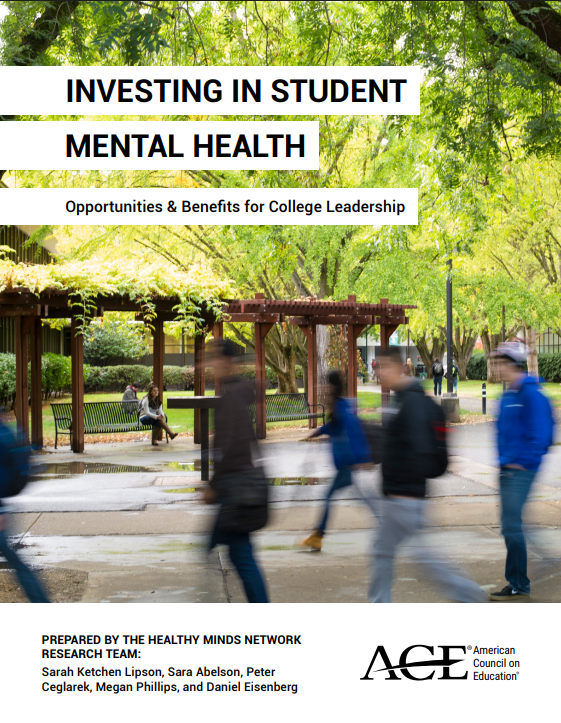
Investing in Student Mental Health: Opportunities & Benefits for College Leadership
This 2019 brief report uses evidence from college student populations and examples from college presidents to examine how higher education leadership can advocate for and invest in student mental health.

